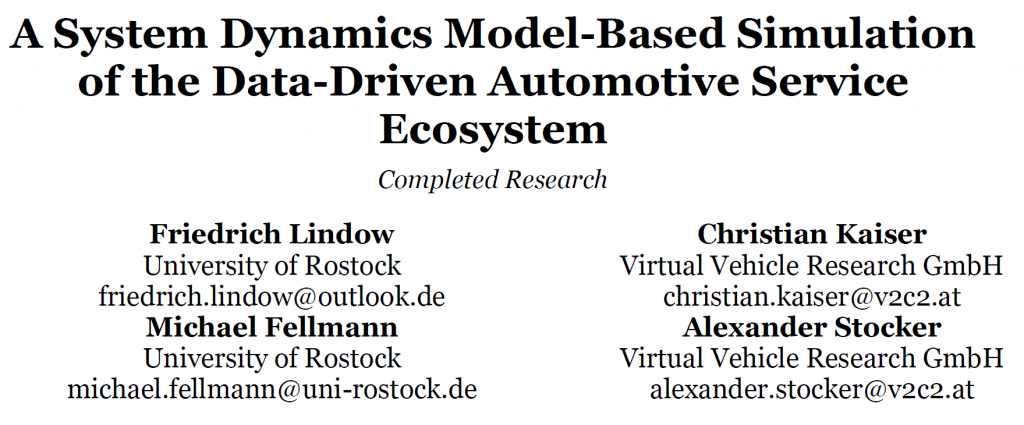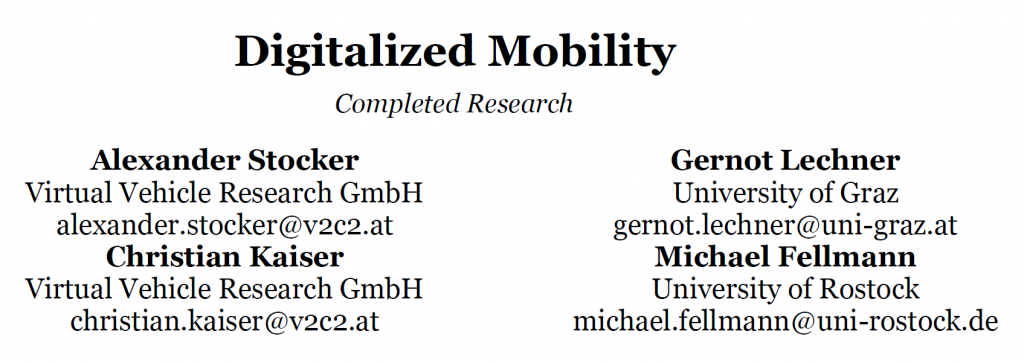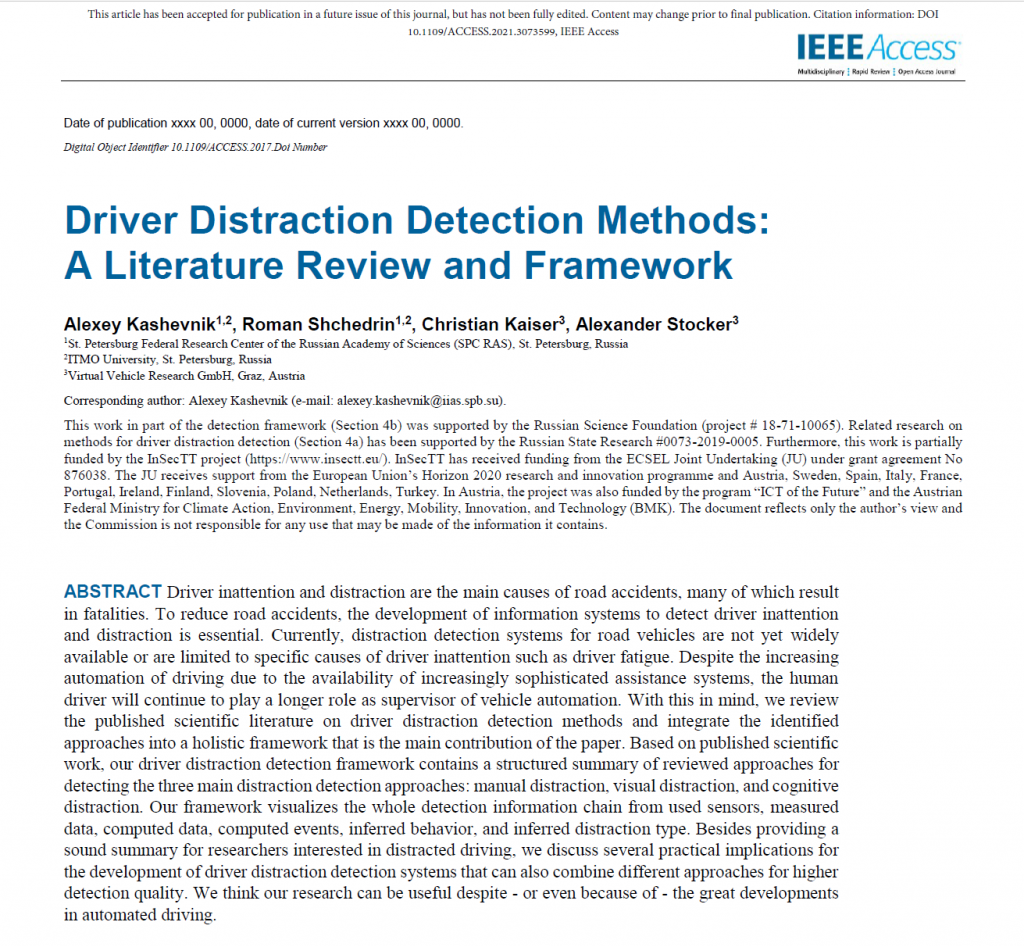Happy to announce that the paper of Alexander Stocker and me was published* open access in the e&i journal (elektrotechnik und informationstechnik)
-
![[PDF]](https://www.christiankaiser.at/wp-content/plugins/papercite/img/pdf.png)
![[DOI]](https://www.christiankaiser.at/wp-content/plugins/papercite/img/external.png) Stocker, A., & Kaiser, C.. (2016). Quantified car: potentials, business models and digital ecosystems. E & i elektrotechnik und informationstechnik, 133(7), 334–340.
Stocker, A., & Kaiser, C.. (2016). Quantified car: potentials, business models and digital ecosystems. E & i elektrotechnik und informationstechnik, 133(7), 334–340.
[Bibtex]
@Article{e&i2016qcar,
author="Stocker, Alexander
and Kaiser, Christian",
title="Quantified Car: potentials, business models and digital ecosystems",
journal="e {\&} i Elektrotechnik und Informationstechnik",
year="2016",
volume="133",
number="7",
pages="334--340",
abstract="A modern vehicle is a ``computer on four wheels'' equipped with many different types of sensors. The so enabled continuous collection of vehicle lifecycle data facilitates the generation of innovative products, services and business models. In analogy to the Quantified-Self-movement, the USA has already evolved a plethora of Quantified Car startup companies backed by enormous amounts of risk capital, reaching more than 20 million USD in some cases. These developments clearly demonstrate how high investors perceive the market value of a working digital ecosystem for Quantified Car. This paper provides an introduction into the Quantified-Car-phenomenon and analyses the business models of three different Quantified-Car-startups: Automatic, Mojio, and Dash. One major finding is that their use cases, services and underlying technologies show many similarities. The paper closes with a discussion on the increasing competition between the players from the ICT and the automotive domain on the supremacy in the development of a digital ecosystem for Quantified Car.",
issn="1613-7620",
doi="10.1007/s00502-016-0429-3",
url="http://dx.doi.org/10.1007/s00502-016-0429-3"
}
Abstract:
A modern vehicle is a “computer on four wheels” equipped with many different types of sensors. The so enabled continuous collection of vehicle lifecycle data facilitates the generation of innovative products, services and business models. In analogy to the Quantified-Self-movement, the USA has already evolved a plethora of Quantified Car startup companies backed by enormous amounts of risk capital, reaching more than 20 million USD in some cases. These developments clearly demonstrate how high investors perceive the market value of a working digital ecosystem for Quantified Car. This paper provides an introduction into the Quantified-Car-phenomenon and analyses the business models of three different Quantified-Car-startups: Automatic, Mojio, and Dash. One major finding is that their use cases, services and underlying technologies show many similarities. The paper closes with a discussion on the increasing competition between the players from the ICT and the automotive domain on the supremacy in the development of a digital ecosystem for Quantified Car.
* as mentioned by Alex back then in November 16′ already here






![[PDF]](https://www.christiankaiser.at/wp-content/plugins/papercite/img/pdf.png)